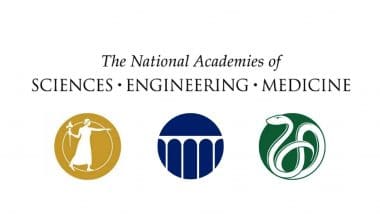Food certifications are a must-have for every professional in the food industry. This is a no-brainer, as everyone wants to be sure that his/her food manufacturer is adhering to safety regulations in their production method.
In time past, food poisoning has killed some individuals. So, regulations have been put in place to prevent a re-occurrence of such incidents; thus, the need for food certifications programs to enlighten food producers on best practices to follow in the food industry.
This article will discuss the top 5 food certification programs to enhance your career in 2024.
Table of contents
- What are food certifications?
- Benefits of Getting a Food Certification
- Cost of Getting Food Certification
- How long does a food certification last?
- Jobs You Can Get With Food Certification
- How much you can earn as a food certified professional?
- Steps to Getting a Food Certification
- Top 5 Food Certification Programs to Enhance your Career in 2024
- Conclusion
- Reference Links
- Recommendations
What are food certifications?
Food certifications are certifications that objective third-party issues, ascertaining and verifying that a product and the methods and systems used by the product’s manufacturer meet various food safety standards. Food certifications are based on tests, inspections, and audits.
They make customers more confident in using a product since its systems and method of production and the product itself have been thoroughly evaluated by accepted national and international standards by an objective and competent third party.
Food certifications also help one adopt the industry’s highest standards in food safety and gain access to global markets.
Benefits of Getting a Food Certification
There are many benefits to getting a food certification as a manufacturer in the food business and other related products.
Also, not only would it be of significant benefit to the manufacturer, but it would also benefit consumers, and ultimately the nation at large.
Below are some benefits of getting a food certification include;
- Gaining a food certification would enhance your brand’s credibility; signaling to your consumers and target audience that you adhere to industry standards for food safety and quality.
- This would enable your consumers to trust your product, and even tell others about you.
- This leads to the next benefit of acquiring a food certification, which is gaining a competitive edge in the marketplace.
- A food certification would put you ahead in your industry, and help you gain an edge over your competitors, who may not have acquired a food certification.
Another benefit of a food certification is that it helps you maintain consistency in producing quality. When you follow an industry regulated system and standard in your production, there would be consistency in the quality of what you produce, over time.
A food certification also helps you, when seeking insurance for your food business. This is because most insurance companies would require it, before insuring your business with their company.
Also, it is cost efficient, as it mitigates against the waste you would have, if a product recall occurs, when it is discovered that you do not follow industry standard requirement for your production.
It also saves you from lawsuits in the extreme case of food poisoning as a result of careless production systems and methods.
It protects the supply chain and promotes best practices while helping you stand out in your industry.
Cost of Getting Food Certification
A food certification has many benefits compared to the amount it would cost you to obtain one.
On average, a food certification costs between $100 to $150.
How long does a food certification last?
The length of time that your food certificate lasts before expiration depends on your state’s health inspectors’ office regulations.
Typically, a food certification should last between 2-3 years, and after expiration, you would be required to retake the course and exam to renew your certificate.
Jobs You Can Get With Food Certification
There are many job opportunities in the food industry that one can take up with a food certification. Some of these jobs are:
1. Food Product Development Scientist:
One of the jobs you can do with a certification in food safety is that of a food product development scientist. This job requires you to find means to improve the safety and nutritional value of different food products.
Formulations and procedures are also developed to help increase food quality for customers’ satisfaction while controlling costs. Food Product Development Specialists are also responsible for processing, canning, freezing, storing, and packaging food.
A Food Product Development Scientist earns about $68,970 annually.
READ ALSO: Top 15 Food Science Ph.D. Scholarships
2. Nutritionist:
A nutritionist accesses a person’s dietary needs while consulting with health professionals to develop a nutrition plan that fits the individual’s state of health.
They provide professional advice on how people can lead a healthy lifestyle based on what they eat.
Also, they evaluate the effect of each meal plan and make changes if needed. They must be updated with the latest nutritional science research to give sound advice to their clients.
A nutritionist can work in hospitals, nursing homes, schools, etc., earning up to $61,270.
3. Regulatory Affairs Specialist:
A Regulatory Affairs Specialist ensures that the production of food and other related products conforms to the stated laws.
They are current about food and dietary legislation and carry out consistent reviews of procedures, hereby making sure that companies in the food industry operate within the law guiding food manufacturing, packaging, distribution, etc.
They also help obtain and maintain government approval for drugs, medical devices, nutritional products, etc. They help to ensure Quality Assurance in the food industry.
Regulatory Affairs Specialists earn about $60,837 annually.
Related Post: Can I Become A Registered Dietitian Online Without A Nutrition Degree In 2024?
4. Food Labelling Specialist:
They are saddled with the responsibility of writing the nutritional labels on food products, and they come up with product names, weight statements, ingredient statements, alert declarations, etc.
They also ensure that the ingredients used in making the product, its nutritional facts, etc., align with industry laws.
Food Labelling Specialists review new packaging proof at all design stages to ensure the correctness of the information and the accuracy of grammar used in writing them. They also keep up to date with regulatory industry changes. They earn about $57,699.
5. Chef:
A chef is a professional in the food industry, who specializes in preparing food, often focusing on a particular cuisine.
They are expert cooks who oversee a kitchen, plan the menu, maintain the budget, price menu items, prepare food, and ensure the quality of service and safety in food preparation.
Every chef needs a food certification to help them improve and do better in their field of expertise. They are highly knowledgeable about food preparation, production, and processing.
They earn about $49,300 annually.
6. Food Safety Auditor:
Food Safety Auditors ensure that unsafe food is kept away from the market, restaurants, supermarket shelves, etc.
They work in a food manufacturing company and perform audits on food. They also train individuals and groups in the food industry on topics such as pest control, food safety, and food production equipment maintenance.
They are always up to date on current food safety regulations and help remedy non-conformities, improve employee performance, etc.
They earn about $79,347 annually.
7. Public Health Nutritionist:
Public Health Nutritionists work to improve the nutritional lifestyle and health of a specific group of people in a place. They work with groups rather than with individual clients.
They look out for the nutritional issues these groups face and develop programs and educational resource materials to address these issues.
They earn about $65,875.
8. Corporate Wellness Consultant:
They provide guidelines on healthy eating and maintaining a healthy lifestyle through healthy feeding and exercising.
They provide their clients with information on topics such as nutrition, health, stress, fatigue, etc. They do this by organizing seminars, creating wellness educational materials, etc.
They earn about $55,472.
SEE ALSO: 20 Colleges With the Best Food in 2024
9. Nutrition Services Manager:
They work with care facilities, hospitals, and other facilities to plan and manage a large nutritionally appropriate meal schedule.
They plan menus, get supplies, manage meal budgets, and also oversee meal preparation to ensure that the cooks are following nutritionally appropriate methods in food preparation.
They earn about $53,884.
10. Nutrition Writer:
Everyone wants access to health and nutrition information, so you can combine your writing skills with your food certification and become a nutrition writer.
A nutrition writer writes articles, books, white papers, magazines, web content, etc., on nutrition topics, such as healthy eating, meal planning, and other related topics.
A nutrition writer earns about $39,555 for a freelance position.
How much you can earn as a food certified professional?
Various factors determine the amount one can earn as a food-certified professional or manager.
These factors include education, certifications acquired, skills, location, number of years of experience, expertise, etc.
Averagely, a certified food manager earns about $81,016 to $112,083 annually.
Steps to Getting a Food Certification
In getting a food certification, there are some steps to take from when you conceive the idea down to the day you finally get your certification as a food professional.
First, check your state’s training requirement to know the approved courses, the particular certification you should get, depending on your job role, etc.
After getting vital information on this, get the course. This could be online or in-person, depending on your preference and what is available at your location.
Your course covers the cost of learning materials, exams, and the license.
Then, take your exam after completing the course to proceed as a certified food professional. The exam usually contains 45-50 questions, with a 75% pass requirement.
After you pass, you could print your certification or send it to your mail by the program organizers.
Now, you can display your food certification, where your customers and health inspectors can see it.
Top 5 Food Certification Programs to Enhance your Career in 2024
There are different food certifications available to be taken today to certify you as a food professional and as an expert food handler who adheres to food safety regulations.
Some of these food certifications are:
1. Good Manufacturing Practice (GMP):
The GMP certification ensures the quality of a product by establishing manufacturing processes, determining and documenting these processes, and then training operators to follow them.
It ensures that food is of high quality and is produced in compliance with food safety regulations. GMP regulations are controlled by the United States Food and Drug Administration (FDA).
2. Hazard Analysis and Critical Control Points (HACCP):
HACCP is a food safety certification for individuals in the food industry who works in food manufacturing, food packaging, food warehouse storage, etc.
It is geared towards preventing hazards in food and pharmaceutical products. HAACP focuses on physical, chemical, and biological hazards as a means of prevention before a finished product inspection.
HAACP is an internationally recognized certificate. And it helps to reduce the risks of unsafe products by identifying and managing risks to food safety and critical control points.
SEE ALSO: Top 10 construction certifications in the World | 2024
3. HAZMAT Training:
This certification prepares individuals for the safe handling and disposal of hazardous materials.
They deal with hazardous materials in the food manufacturing and processing industry, such as cleaning solvents and fuel.
The certification is important in areas of the food industry, such as manufacturing and testing of packaging and containers, transportation, shipping, handling, and storing of these materials.
4. Six Sigma:
This is a measure of quality that aims for perfection when assessing something. The Six Sigma certification focuses on eliminating defects, using a disciplined and self-driven approach in food handling.
The certification also enables one to explain the Six Sigma Methodology, philosophies, and principles when working in the food and product industry.
5. Safe Quality Food (SQF) Certification:
This internationally recognized certificate communicates a business’ Quality Management System (QMS) to conform with food safety regulations.
SQF Certification helps ensure that a product has passed and met the required international standards for food safety.
It also shows that the organization practices Good Agricultural Practices (GAPs) and Good Manufacturing Principles (GMPs) for food.
Conclusion
Food certifications are important if you want to grow as a professional in the food industry.
Hence, make sure you take up some certifications, as suggested in this article and watch yourself grow in your career.
FAQs
Food certifications are certifications issued by an objective third party, ascertaining and verifying that a product and the methods and systems used by the product’s manufacturer meet various food safety standards.
It helps to maintain consistency in food quality.
It helps in building brand credibility.
It is cost-effective
It is important if you want to ensure your food business.
To protect the supply chain and promote best practices.
It gives you an edge over your competitors.
Check your state’s training requirements.
Buy and study the food certification course
Take the exam
Receive your certification
Your food certification is valid for about 2-3 years, after which you would be required to renew it.
Food Product Development Specialist
Nutritionist
Regulatory Affairs Specialist
Food Labelling Specialist
Chef
Food Safety Auditor
Public Health Nutritionist
Corporate Wellness Consultant.
Nutrition Services Manger
Nutrition Writer
Good Manufacturing Practice (GMP)
Hazard Analysis and Critical Control Points (HACCP) Certification
HAZMAT Training
Six Sigma
Safe Quality Food (SQF)
Reference Links
- nextinsurance.com/blog/food-handler-license-requirements/
- indeed.com/career-advice/finding-a-job/careers-in-nutrition
- salary.com/research/salary/benchmark/food-safety-manager-salary
- m.careersinfood.com/career-planning/education-and-training/training-and-certification-programs/
- trade-schools.net/articles/nutrition-jobs





